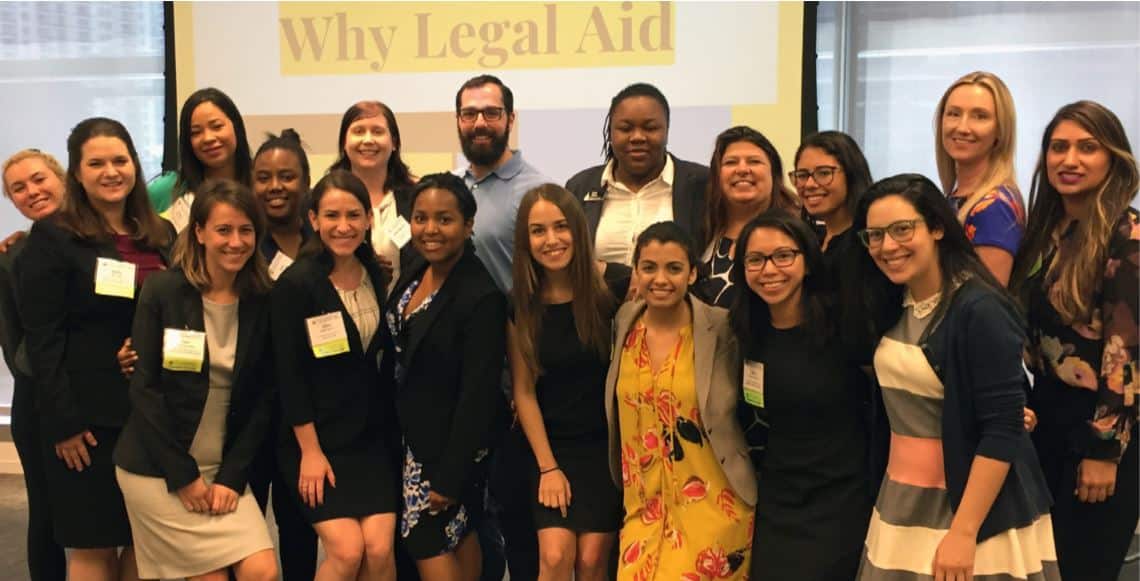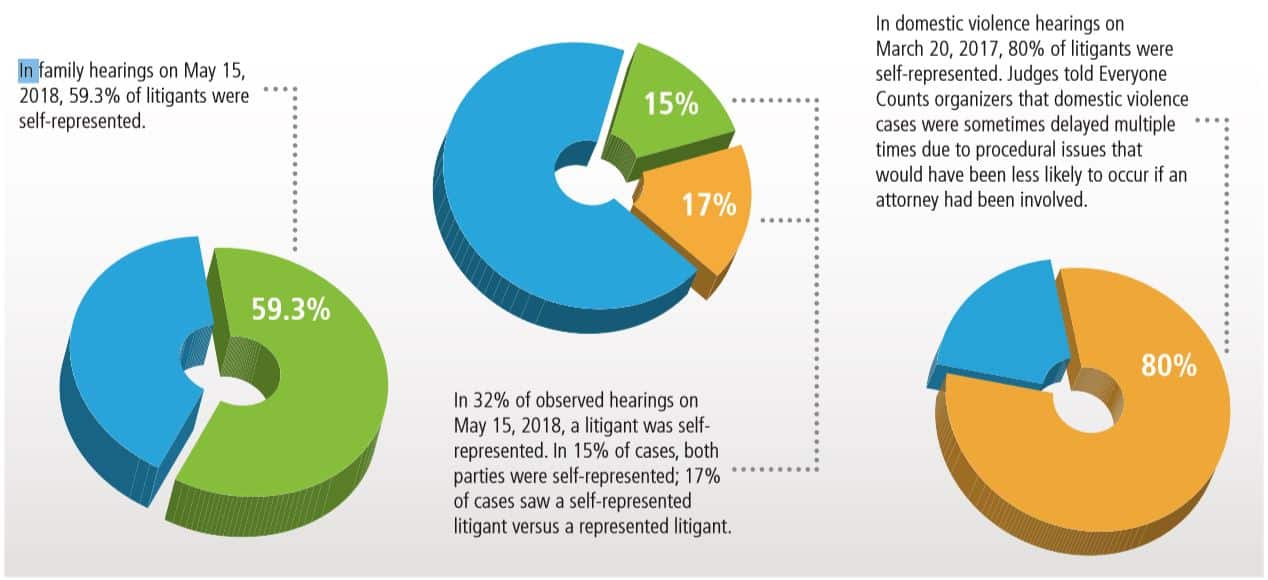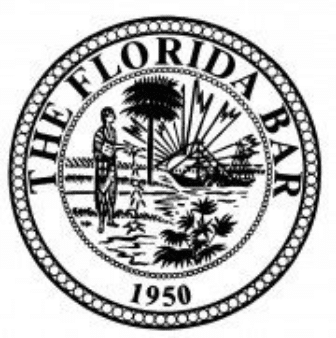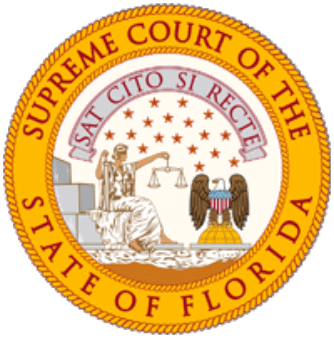
On May 15, the Foundation facilitated Everyone Counts, an initiative to take a census-like count of self-represented litigants on a single day in the Miami-Dade court system.
First conducted March 20, 2017, Everyone Counts found that 63 percent of litigants were self-represented that day, and that domestic violence court had the highest number of self-represented litigants at more than 80 percent.
“This effort, coordinated with the Eleventh Judicial Circuit, gathers data that is currently not available in Florida,” said Claud Nelson, the Foundation’s pro bono program officer.
Thirty-seven volunteer lawyers and law students observed 482 litigants in 338 hearings at seven of the Miami-Dade courthouses this year. Last year, nearly 40 volunteer attorneys observed 190 hearings involving 277 litigants. Matters included family law, foreclosures, eviction, small claims, property damage and others.
Litigants who represent themselves are at a distinct disadvantage. A Colorado Center on Law and Policy study found that renters who lacked legal representation were evicted 68 percent of the time from private housing. Meanwhile, those who were represented by counsel were evicted only 6 percent of the time.
Everyone Counts found that family law and domestic violence cases consistently have a higher percentage of self-represented litigants. With more cases than legal aid organizations are able to take, clients must turn to resources such as pro bono attorneys and law libraries.
“We have resources to help selfrepresented litigants navigate the legal system,” said Natacha JeanBaptiste, director of Miami-Dade County Law Library. “MDCLL has experienced a dramatic increase in the number self-represented litigants availing themselves of law library resources, particularly since the foreclosure crisis and economic downturn.”
In follow-up discussions with judges, the consensus was that attorney representation makes the judicial system function more efficiently. By collecting information on those who have no representation, the Foundation hopes to devise effective ways to support these litigants and improve the judicial system.





